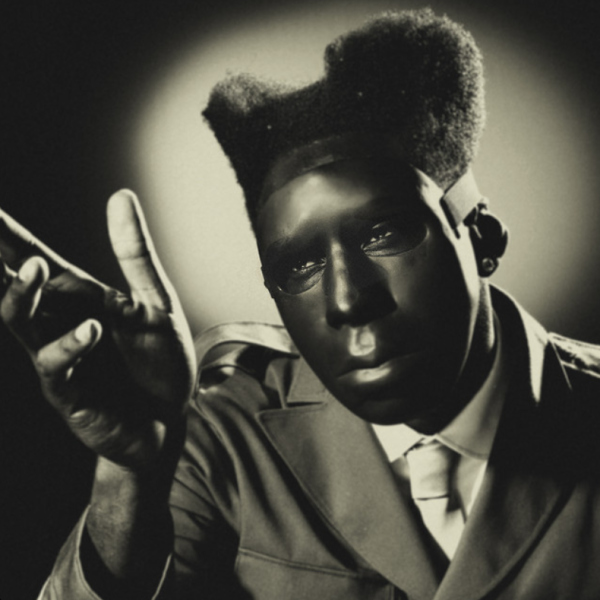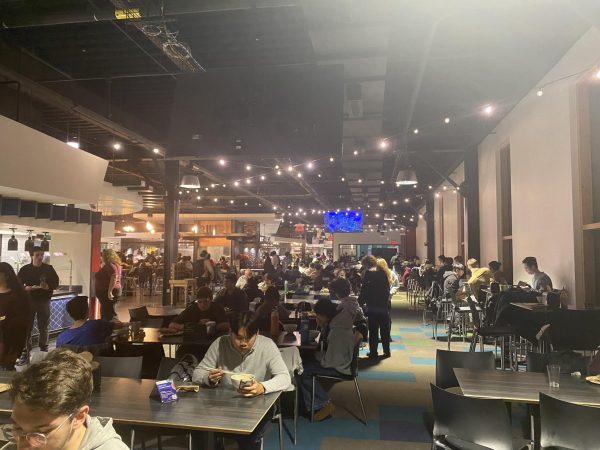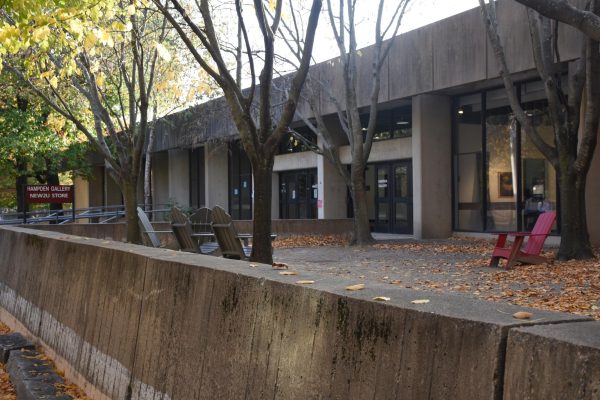Why H-1B visas are important
“He told me not to talk to Americans about this.”
I live in a first year residence hall with a high population of international students.
My role in the hall is a professional one — I am the resident assistant for these students. I am responsible for providing peer counseling along with various other tasks. My conversations with residents, though, are most often light-hearted.
But sometimes an exchange will catch me off guard.
A conversation presented itself to me just five days after the inauguration of the 45th President of the United States. I found myself in a room with two other resident assistants and a Chinese student who lives in our building. The student sat on a bean bag near the center of the room with their legs pulled close to their chest.
“How much do you know about H-1B visas?” the student asked, urgently albeit timidly.
I’ll admit I was quite ignorant on the topic. In that moment, I felt selfish. As a natural born citizen, I know next to nothing about United States’ work visas — it is not something I will ever need.
As someone who works with international students, however, I should be more informed than I am. Maybe that’s why the professional working in foreign affairs told the student not to speak to Americans on the topic. Or maybe he feared we all shared identical views on immigration to that of our current president.
I attended a lecture a couple months ago on immigration and refugee policies in the United States. The presenter, Giovanna Dell’Orto, immigrated to the United States from Italy and became a naturalized citizen just two years ago. Dell’Orto found success in writing and worked for some time with the Associated Press specializing in border and migration coverage. The information I gathered from her lecture was introductory and provided me a foundation riddled with cracks. This was not to the fault of the speaker. It is due to the density of immigration policy.
“Can anything I just told you fit into 140 characters?” Dell’Orto asked at the conclusion of the fact-based portion of her talk. “No. And that is why it almost never makes the news.”
Indeed, U.S. immigration policy is not something that can be summed up in a tweet or even a lecture or even an op-ed.
The H-1B visa is a non-immigrant work visa in the United States. It falls under Immigration and Nationality Act section 101(a)(15)(H). This visa provides temporary employment for non-immigrants. Upon retrieval of the visa, the worker must have already gained a Bachelor’s degree in a broad list of fields like engineering, social sciences or mathematics, among others. An H-1B visa is not the same as a green card due to the temporarily given work status. Each fiscal year 140,000 immigrant visas are available for those who seek jobs. H-1B visas are primarily used in the tech industry to hire foreign workers.
The Trump administration has drafted an executive order that they may soon pass that would change how these visas are used. The draft reads, “Our country’s immigration policies should be designed and implemented to serve, first and foremost, the U.S. national interest …”
What Trump doesn’t understand is that H-1B visas provide jobs for Americans as well.
Let me explain. America’s education system is failing, there are tech jobs that we are simply not qualified for. If foreign workers can come to our country and fill these gaps, our economic system would work better. Filling these gaps would allow for work to resume at a quicker rate. If Trump really wants Americans to fill more jobs, he needs to take a hard look at our education system first and ask why Americans aren’t filling these ever-present job openings already.
Maybe this isn’t about Americans, though. Maybe for once, we need to take a step back from our ethnocentric mindset and realize that everything is not about us.
We shouldn’t be asking how H-1B visas benefit us, but we should be asking what aid they are providing for others as well as ourselves.
H-1B visas provide a better livelihood for our fellow human beings. Who cares if they are not from our country? The pursuit of happiness is not reserved only for Americans.
Email Olivia at olaramie@umass.edu or follow her on Twitter @O_Laramie.











